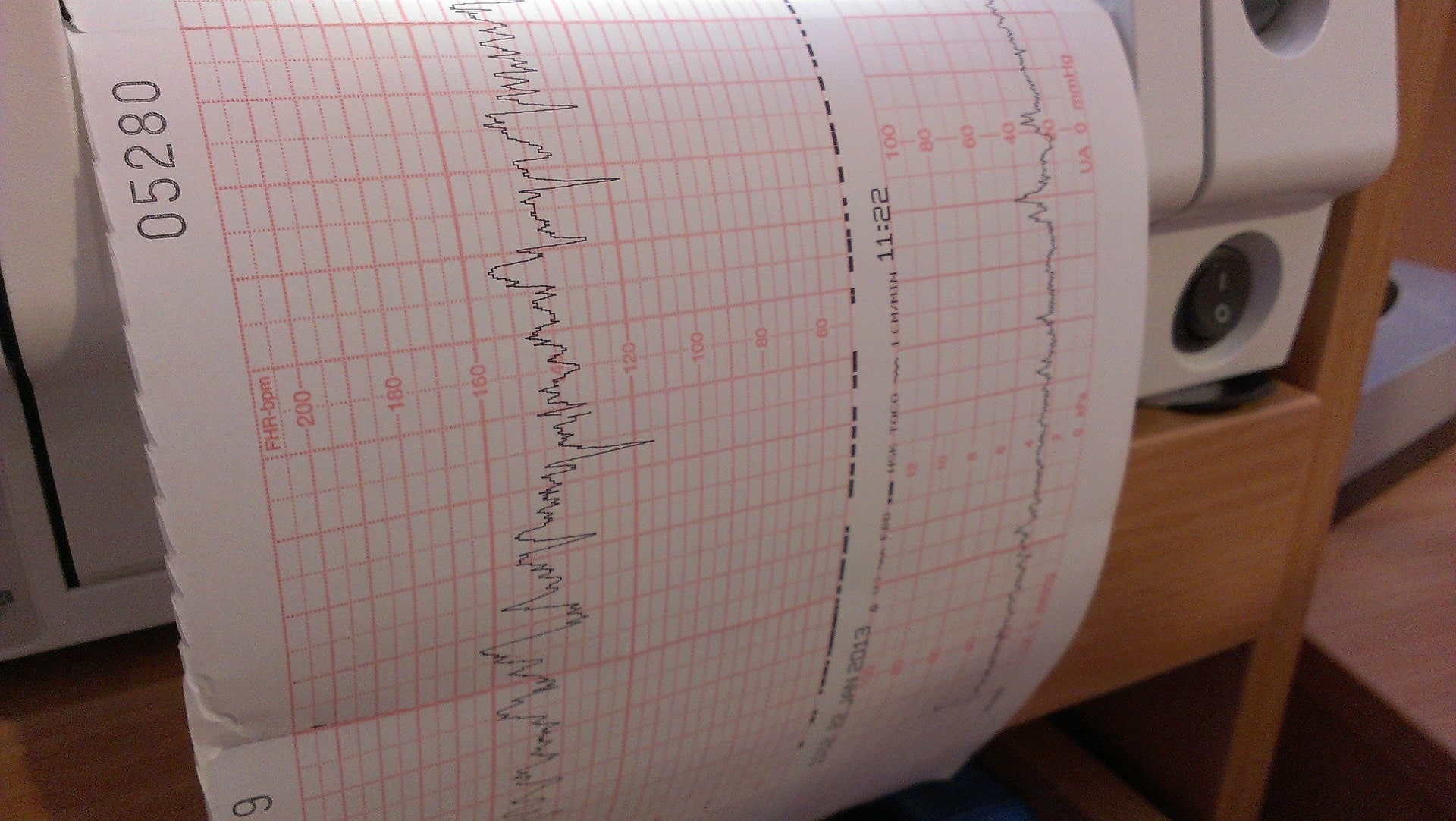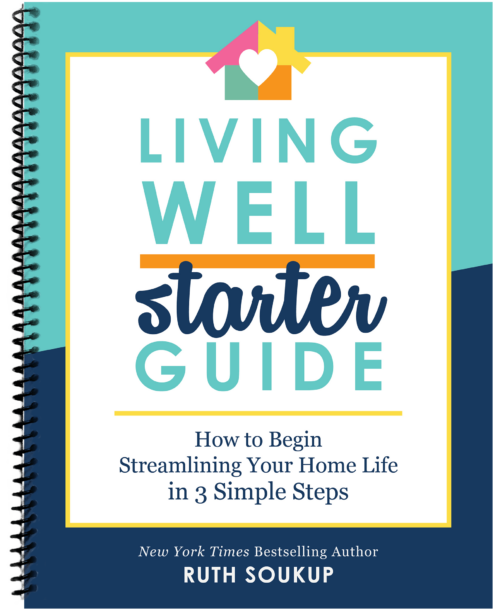Stressing out about how to pay for childbirth and delivery of your new baby? Don’t miss these 7 tips for how to cut the cost of having a baby.
It’s no surprise that having a baby can be incredibly expensive. Between the doctor’s bills, the hospital bills and all of the things a new baby needs, the costs can really add up quickly. In fact, according to this article on Parenting.com, parents pay an average of $8,802 per child in prenatal, delivery-related and postpartum healthcare charges alone.
Thankfully, just because other parents are paying this much (and more!) to birth their babies does not mean that you have to do the same. It is possible to slash these costs dramatically, saving yourself thousands of dollars in the process, and it probably won’t even take you long at all. You just have to know how.
How to Cut the Cost of Having a Baby
Whether you’re pregnant currently or you hope to be soon, now is the time to start thinking about how to cut the cost of having a baby. Don’t blindly accept over-inflated hospital bills, thinking that you don’t have a choice. Use these seven tips to save big.

1. Check Your Insurance Coverage Before You Get Pregnant
Just because you have insurance doesn’t mean that your pregnancy is covered. The insurance I had with my second child didn’t cover pregnancy-related expenses at all, and the insurance I had with my third child did cover pregnancy–but not at the hospital I wanted to deliver at.
Take the time to thoroughly look over your insurance coverage before you get pregnant to make sure it covers everything you think it does. Then, call your insurance company and talk to a representative to make sure you are understanding your policy correctly and not forgetting any important details.
Don’t just consider the uncomplicated birth you hope to have either. Make sure you are covered in case the unthinkable happens. Will your insurance cover you if you have a medical emergency and need to stay in the hospital for an extended period of time? What if your baby has complications? Will your baby automatically be covered from birth or does he or she need to be added ahead of time?
While calling the insurance company is rarely fun, this is one phone call you won’t want to put off. The sooner you check your coverage, the more time you’ll have to shop around for different insurance or to investigate other options, if needed.

2. Call Around to Compare Rates
Even with insurance, the price you’ll pay for prenatal care and labor and delivery can vary widely depending on where you go and who you see. Don’t choose your doctor or hospital without doing a little research first. Consider location, credentials, and recommendations from friends, but be sure to look into the price differences as well.
Call around to various doctor’s offices and ask questions such as:
- How much does it cost to have a baby through one of your doctors?
- Does this cost include both prenatal care and delivery charges?
- Does it include a six week check-up for me or the baby’s first well-baby visit?
- Do I need to pay as I go or am I billed after baby is born?
- What medical tests am I likely to have done that I will also need to budget for? (Ultrasounds, blood work, etc.)

3. Ask About Available Discounts
Don’t have insurance? The cost may not be as bad as you think. Call the hospital and doctor’s office ahead of time and ask if they have any available discounts, such as a “no insurance” discount, a “cash” discount or a “pay in full” discount. If they say they do, be sure to get as much information as you can. Write it down so you don’t forget and so you can hold them to it later.
As someone who often hasn’t had good insurance coverage, I can tell you most places are willing to work with you! Every time I’ve called and asked about discounts, the other party was happy to provide one, and the cost was always comparable to what it would have been if I had had insurance. Hospitals and doctor’s offices don’t typically advertise these discounts, however, so you’ll never know unless you ask.
4. Ask About Payment Plans
Unless you are 100 percent certain that you’ll be able to save up enough money to cover all of your pregnancy-related medical expenses before baby arrives (in which case, good for you!), you’ll also want to ask the hospital and doctor’s office if they offer any sort of payment plans. Again, most places won’t advertise these; you’ll have to ask.
If they do, ask questions such as:
- When will my first payment be due?
- How many payments will I make?
- What will my payments be?
- How often will my payments be due–monthly, weekly, or as I can afford to make them?
- How long will I have to pay the entire balance?
- Will I pay interest on my balance while I’m paying it off?
- Is my payment plan based on my credit?
- Does the price or interest rate change depending on the number of payments I make?
- What happens if I miss a payment or cannot pay the full amount I’m supposed to?

5. Skip Unnecessary Tests and Procedures
When sitting in the doctor’s office, especially as a first-time mom, it can be very tempting to simply go along with everything the doctor says without question. After all, she has a medical license; you don’t. The problem with this, however, is that after seeing hundreds of patients over several years, many doctors begin running on routine–making decisions based on habit, rather than what you personally need.
Your doctor may routinely recommend three ultrasounds, but you really only need one. He may offer additional vaccines or genetic screenings, which you may want to opt out of. Personally, when I mentioned to my doctor that I was feeling unusually tired, he automatically wanted to do blood tests for anemia and thyroid issues, even though my symptoms didn’t fit. I politely declined. You can too, if you feel the tests are unnecessary.
While you would never want to skip necessary tests in an effort to save a few bucks, there may be times when your doctor recommends certain tests more out of routine or as a precaution than because you really need them to keep yourself or your baby healthy. Don’t be afraid to talk to the doctor to find out what’s really necessary and what’s not.
6. Opt for a Natural Birth
While a natural, drug-free birth may not be right for everyone, it can save you thousands of dollars if you’re up for the challenge. I didn’t have an epidural with any of my children, and my first two were well over nine pounds!
With the cost of epidurals typically ranging from $1,000 to $2,000, opting to go without one can save you a significant amount of money. Plus, did you know that women who do have epidurals are more likely to have C-sections? Or that women who don’t have epidurals often have quicker, easier recoveries after birth? A quicker, easier recovery means a shorter, cheaper hospital stay and less money spent on pain medications after the fact.

7. Know How the Hospital Bills
Does your hospital consider a one-day stay to be 24 hours from the time you check in, 24 hours from the time your baby is born, or when the date on the calendar is one number different? This is one question most mothers never think to ask, and yet it could potentially save you thousands, especially if you pull up to the hospital at 11:30 p.m. like we did!
The more questions you ask, the less likely you’ll be to end up paying for something you didn’t need to. Call the hospital ahead of time and ask questions such as:
- Assuming I have no complications, how long will be I required to stay?
- Are my meals included in the price? What about my husband’s?
- Are diapers, pads and pain medication included in the price, or will I be charged extra?
- Will my child’s newborn screenings be included in the price, or will I receive a separate bill?
- How soon after my baby is born should I expect the bill?
Just because babies are completely adorable and worth every penny does not mean that you should pay more to have one than you need to. Use these seven tips to save thousands on your pregnancy-related medical expenses and put those extra funds aside for later. Trust me, you’re going to need them!
To recap, here are the way on How to Cut the Cost of Having a Baby
1. Check Your Insurance Coverage Before You Get Pregnant
2. Call Around to Compare Rates
3. Ask About Available Discounts
4. Ask About Payment Plans
5. Skip Unnecessary Tests and Procedures
6. Opt for a Natural Birth
7. Know How the Hospital Bills
Want more? Don’t miss these other helpful resources!
PIN FOR LATER

TAKE BACK CONTROL OF YOUR HOME LIFE
 Ever feel like you just can't keep up? Our Living Well Starter Guide will show you how to start streamlining your life in just 3 simple steps. It's a game changer--get it free for a limited time!
Ever feel like you just can't keep up? Our Living Well Starter Guide will show you how to start streamlining your life in just 3 simple steps. It's a game changer--get it free for a limited time!
If you love this resource, be sure to check out our digital library of helpful tools and resources for cleaning faster, taking control of your budget, organizing your schedule, and getting food on the table easier than ever before.










That’s funny reading the avg cost, because I just called a Birth Center this week and their cost was going to be $8800 (plus a 20% self-pay discount). A friend recommended a home birth midwife who costs half as much. Someone once told us they charge the insurance companies more-because they can.
It’s so true. I don’t know how it is everywhere, but the drs around here totally jack up the prices just so insurance can bring them back down again. It makes no sense.
Sounds about right. I had my baby at a birth center and it was a total of 8000 with about 2000 out of pocket.. Definitely less uncertainty about having to wait for random hospital bills to arrive
Great post. Very informative. I have also heard where some insurances will pay for breast pumps if mom is considering breast feeding and wants to go back to work. This may be something to ask when initially talking to the insurance company
Yes! I’ve heard that too! That little tip can save moms a TON of money!
Yep in Texas most insurances pay for a pump, sadly mine wasn’t 🙁
Thanks for this great post, Brittany! I think a lot of people are floored by the costs when it comes to having a baby–there are a lot of things you need to make sure about, that’s for sure. 🙂 Our insurance (thankfully) paid for most everything which allowed us to pay out of pocket for a doula during the birth–best decision we’ve ever made!
There really are! It’s incredible how I can ask about 1,000 times how much things will cost and what bills we should expect and we STILL get unexpected bills from different sources every time. You would think by the 3rd kid we’d be a pro, but they always come up with something!
For us, paying in cash got us a 10% discount. We also went through every bill with a fine tooth comb. It was still really expensive (even with insurance it cost us about $5k out of pocket), but it could have been much more expensive. We also started throwing money into an account once we got pregnant. It helped to ease the blow when we got those bills!
Oooh, setting money aside early is a great idea too! Really helps make it more manageable!
That was eye-opening! In Canada the only thing I’ve had to worry about at the hospital is whether I’ve brought enough snacks – the meals are free (maybe I should say included? We do pay taxes, after all) but I’m always starving after delivering and so they never feel big enough! It is incredibly nice to not stress about the costs associated with my being there; requiring an emergency C-section would be stressful enough without knowing how much it was going to hurt our budget.
You lucky duck! That sounds awesome 🙂
Yes, as a Canadian, I’m always horrified by the amount of money Americans pay for supposed medical insurance that really doesn’t cover everything. After paying many hundreds of dollars per month, most of the women I know in the US have had to pay co-pays, fees for tests, hospital fees, etc. In BC, where I live, we pay monthly premiums that cover almost anything. The absolute maximum premium for a family of 3 or more people is $150/month. The most I was ever asked to pay during a pregnancy was either $10 or $25 for an ultrasound and that was very unusual. Everything else, including 1 hr long monthly visits with a midwife, home delivery (or delivery or c-section in a hospital) and post-partum care, well baby visits, etc are fully covered, including genetic and blood testing. This is not an area where people should be cutting back! The US needs to develop better health care delivery systems that reach everyone. The medical technology is there, but I’m concerned that it isn’t reaching the people most at risk.
Same here. I live in Germany and health insurance covers basically everything. Prenatal care, delivery in whatever way you choose or is necessary and post natal care. I had a midwife come to see me at home every single day for two weeks. How terrible to have to think about what the delivery of your baby will cost you!